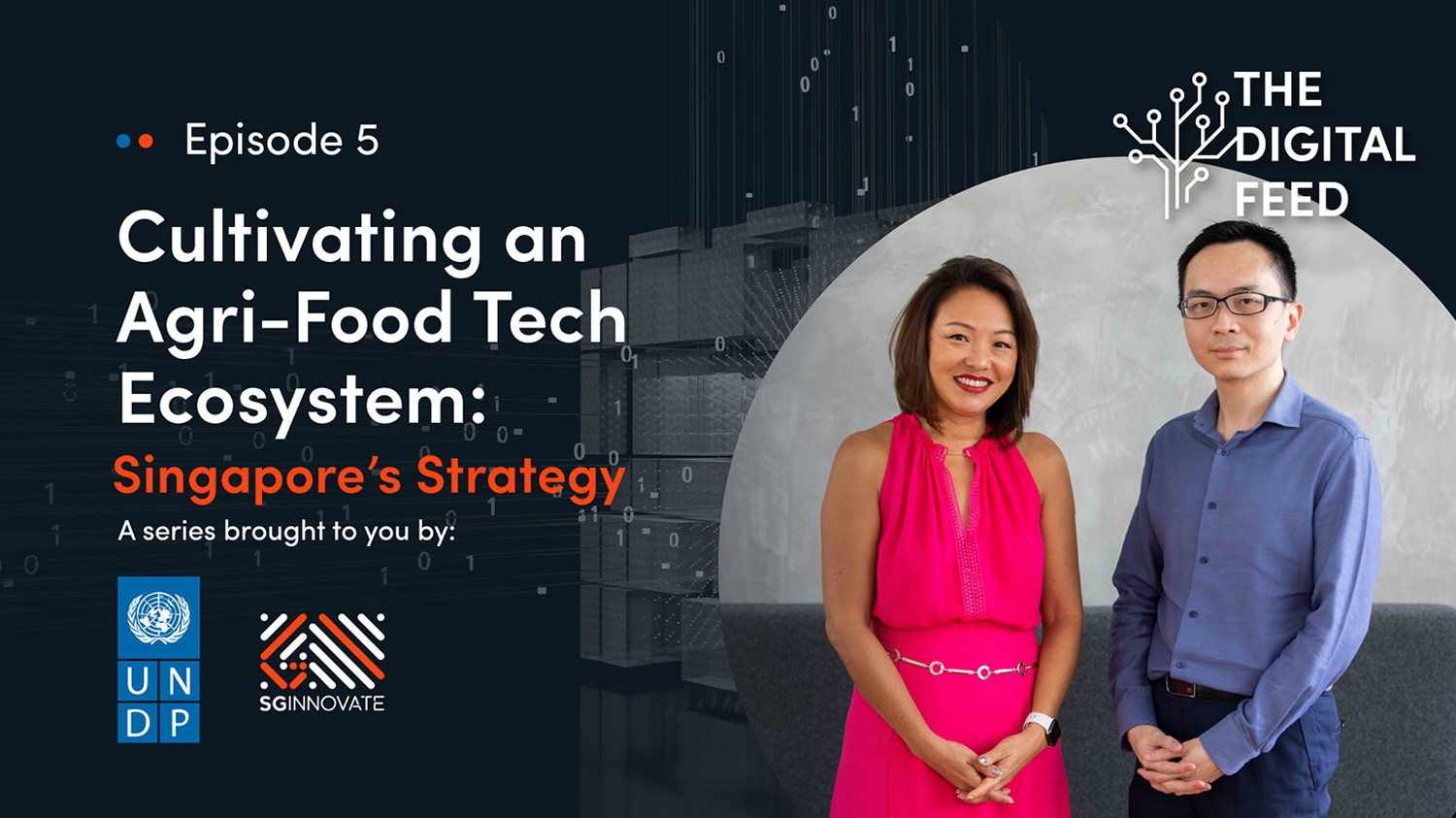The Digital Feed Episode 5: How Singapore is Fostering Innovation and Resilience in its Food Systems
Mon, 12/07/2020 - 12:00
To understand how Singapore is building an Agri- and Food-Tech ecosystem that fosters innovation, we interviewed Johnny Teo, Executive Director — Food, Healthcare & Biomedical at Enterprise Singapore.
Singapore, a small island nation, relies heavily on imports for its food needs. Although it ranked first as the most food-secure nation in the world, Singapore imports more than 90 per cent of its food. To reduce this dependence, the government has announced a “30 by 30” goal to produce 30 per cent of the country’s nutritional needs locally by 2030.
Technology and innovation will play a key role in achieving this ambitious target. To understand how Singapore is building an Agri- and Food-Tech ecosystem that fosters innovation, we interviewed Johnny Teo, Executive Director — Food, Healthcare & Biomedical at Enterprise Singapore, the government agency championing enterprise development.
“Agri- and aquaculture sectors remain the last frontiers” for technological transformation, said Teo. Enterprise Singapore invests in promising startups that can solve Singapore’s unique challenges related to food production and consumption. Expansion of these enterprises internationally is also a priority. “Given that Singapore is a small nation and market, whatever [investments we make] in this space will have to start with the global audience in mind,” remarked Teo.
“We know that we do not have a lot of bench strength in this emerging area,” noted Teo on the importance and need for investing in human capital. Enterprise Singapore is partnering with global accelerators and venture capital (VC) firms to bring them to Singapore, where they can attract international talent and cultivate local entrepreneurs. In addition, it has also set up two innovation centres to provide immediate technical support to budding Agri- and Food-Tech companies.
Partnerships are a core element of building an ecosystem. In addition to a ‘whole-of-government’ approach involving aligned government organisations like the Singapore Food Agency (SFA) and SGInnovate, Teo highlighted a number of international cross-sector partnerships — with research institutions, foreign government agencies, and the private sector.
If you prefer to listen to an audio-only version of these episodes, check out our podcast channel on Spotify here.
This article was first published here. The Digital Feed is an interview series in collaboration with UNDP Global Centre for Technology, Innovation and Sustainable Development in Singapore. This series will delve into the latest developments, trends, and insights in AgriTech and the food space.
Trending Posts
- From satellites to startups, Singapore’s space sector is pushing new frontiers
- How leaders should rethink cybersecurity strategy
- How to Future-Proof a Career in Deep Tech? Start here.
- The future of fusion energy: What will it take to bring the power of the stars to earth?
- Keeping satellites safe: How CYSAT Asia 2026 is tackling space cybersecurity






